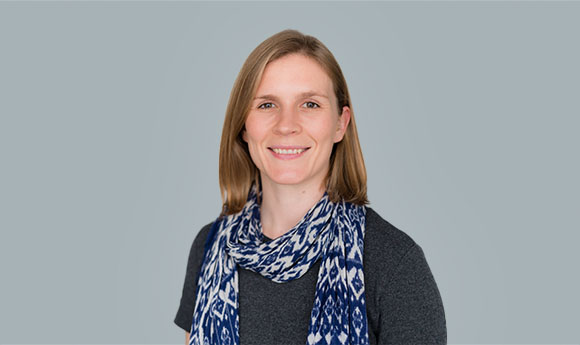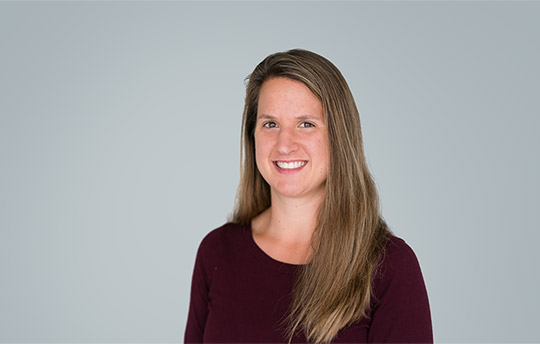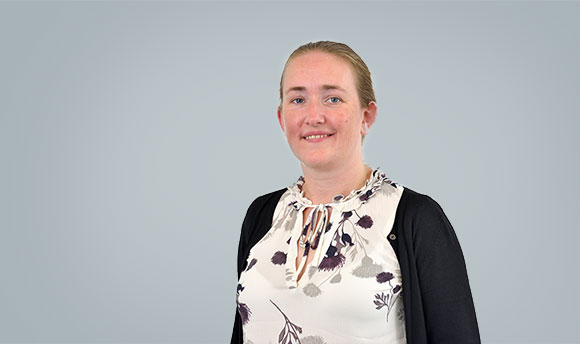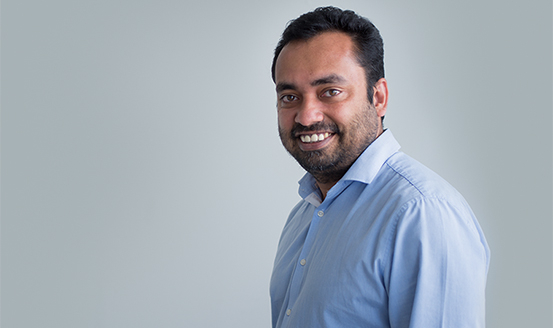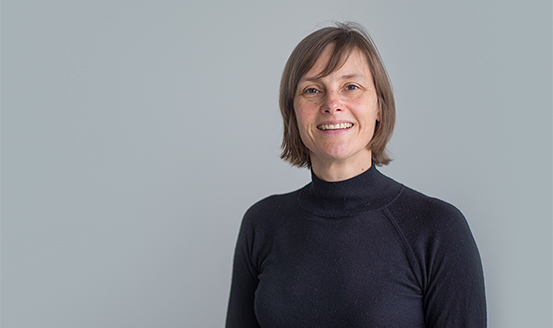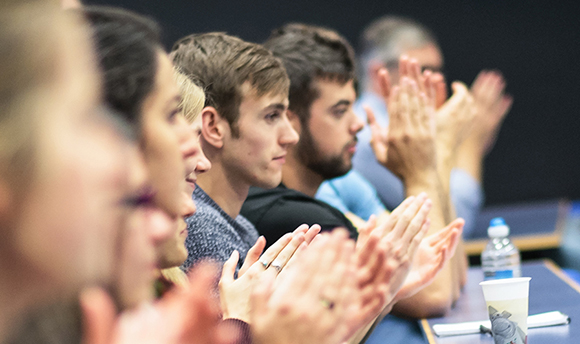Undergraduate Open Days (September and October 2024) Book your place at a QMU Open Day
Master of Physiotherapy (MPhys)/BSc (Hons) Physiotherapy
This four-year undergraduate Master of Physiotherapy (MPhys)/BSc (Hons) Physiotherapy course will equip you with the expertise and practical skills that you need to work as a registered physiotherapist in the private or public health and social care sector. You will thrive in our supportive environment, and benefit from placements each year along with practical experience in our specialist clinical facilities on campus.
Whether you aspire to achieve a BSc (Hons) or an undergraduate master’s degree, we’ll guide you every step of the way. Please see the course structure section on this page for more information on the benefits of pursuing the undergraduate master’s route rather than the BSc.
Why QMU?
- Supportive and vibrant learning environment: We are smaller by design than many universities, so you will enjoy smaller class sizes and a close, supportive relationship with our academic team. You will be part of a vibrant and social learning community that is integrated across all Physiotherapy year groups.
- Learning and teaching methods make for a great learning experience: You will benefit from a carefully considered balance of theory and practical learning. Extracurricular opportunities can further develop your physiotherapy skills.
- Professional recognition and registration: The course is approved by the Health & Care Professions Council On graduation, you will be eligible to apply for registration with the HCPC and a physiotherapist and to apply for membership of the Chartered Society of Physiotherapy.
- Ranked highly in the UK: We are ranked 1st of UK universities for graduate prospects in Physiotherapy, and 2nd in the UK for student satisfaction in that subject (Complete University Guide 2025) and we ranked 5th in the UK for Physiotherapy (Times and Sunday Times Good University Guide 2024).
Master of Physiotherapy (MPhys)/BSc (Hons) Physiotherapy: The course in brief
Physiotherapists are healthcare professionals who use person-centred approaches to make a difference to people’s lives. Physiotherapists work in a wide range of settings and focus on the management and prevention of problems relating to movement and function across the life-span.
Physiotherapy is a demanding course and we recommend that you research the career thoroughly and consider work shadowing before you apply to QMU.
On this course you will:
- be enabled to confidently deliver safe, effective and person-centred physiotherapy care on graduation;
- become part of a community of learners, working collaboratively with lecturers, clinical staff, service users and other students on a transformational journey towards registration; and
- carry out invaluable practice-based placements in each year that will enrich your learning. Placements will take place in a variety of real health and social care settings and you will work (supported by a registered physiotherapist) with patients, their carers and families, and with other health and social care professionals.
How will I be taught?
Structure
During your first two years, you’ll join a diverse cohort of students, exploring the fundamental principles of physiotherapy and gain hands-on practice experience through placement-based learning within health and social care.
As you progress, you will move on to either the BSc (Hons) or the undergraduate master’s pathway depending on your aspirations and performance. Both pathways develop professional skills, knowledge and attributes through a combination of university and placement-based learning. The undergraduate master’s offer an opportunity to delve deeper into areas such as leadership, service improvement, research and public health, at a higher level.
Upon graduation, both pathways lead to eligibility for registration with the HCPC, opening doors to a fulfilling career in physiotherapy.
Find out about the benefits of studying an undergraduate master’s.
Teaching, learning and assessment
You will be taught in lectures, seminars, practical workshops and laboratories. Outside these timetabled sessions you will be expected to continue learning through both directed and self-directed study. You will be assessed using a range of methods including practical exams and written course work at the end of each module or semester.
Placements
Placements are invaluable in consolidating theoretical study into practical expertise by working directly with patients and practice educators. You will complete practice placements in each year.
Placements take place within the NHS and a variety of linked settings covering all pillars of physiotherapy practice at various locations across Scotland.
QMU manages the sourcing and allocation of placements for each student with the exception of the elective placement. The elective placement is organised by each individual student and provides the potential for a practice-based placement in a speciality area of interest or outside of the UK. It may be possible for you to undertake a single, elective, practice-based placement outside the UK.
To enhance future employability placements take place across Scotland with students normally undertaking half their placements in NHS Lothian and the rest in other health boards across Scotland. For some health boards relocation for the duration of the placement might be required unless there are individual requirements (eg specific health needs or school age children) that mean they must remain in a specific location.
Specialist facilities
QMU offers a variety of modern specialist spaces for use by our physiotherapy courses. Two large practical rooms are utilised for teaching and development of clinical skills. Students have access to numerous anatomy models which are incorporated into their learning during practical sessions and can be used during self-directed study sessions. Our physiotherapy students also utilize QMU's clinical simulation suite which is equipped to practice both hands on skills and communication in a simulated real-life environment. The courses also have access to a motion analysis lab and human performance lab.
Teaching staff, class sizes and timetables
You can read more about the teaching staff on this course at the bottom of this page. Please note that teaching staff is subject to change.
For more information, please also visit ‘How we teach and how you’ll learn’.
What will I learn each year?
Year One
You will:
- study a range of modules that will equip you with the basic knowledge and skills for physiotherapy practice. Topics covered include: anatomy, physiology, biomechanics, aspects of psychology, professional practice, basic assessment skills, common physiotherapy interventions and evidence based practice; and
- complete a short foundation placement to introduce you to the application of theory into practice.
Modules
- Becoming an Allied Health Professional
- Finding Your Academic Voice
- Principles of Rehabilitation
- Developing Resilience in Self and Others
- Foundations of Physiotherapy 1
- Introduction to Practice-based Learning (including two weeks Practice-based Learning)
Year Two
You will:
- expand your skills relating to cardiorespiratory, neurological and musculoskeletal physiotherapy;
- broaden your understanding of health and wellbeing and the role of the allied health professional in influencing health behaviour change;
- be encouraged to develop your skills for critical thinking and using information to support your studies; and
- carry out a six-week placement that will give you the opportunity to continue your learning in practice.
Modules
- Foundations of Physiotherapy 2
- Cardiorespiratory Physiotherapy
- Musculoskeletal Physiotherapy 1
- Health Coaching Conversations
- Neurological Physiotherapy
- Developing a Spirit of Inquiry
- Practice-based Learning 1 (including six weeks of Practice-based Learning)
Year Three
You will:
- develop your skills further to look at the management of people with more complex conditions;
- broaden your awareness of healthcare and challenge your understanding of health education and promotion; and
- complete two placements, further expanding your practice knowledge.
Modules:
- Musculoskeletal Physiotherapy 2
- Theoretical and Clinical Approaches to Multidisciplinary Team Working
- Understanding and Appraising the Evidence for Practice
- Advancement of Clinical Management
- Active Citizenship
- Investigation of Practice
- Practice-based Learning 2 (including 11 weeks Practice-based)
Year Four
You will:
- consolidate your practical, theoretical and professional skills through university and practice based learning (PBL) placements;
- explore how the development of leadership, innovation and entrepreneurial skills can contribute to meeting the challenges of contemporary health and social care;
- work with a project supervisor to plan, carry out and evaluate a small scale research project; and
- carry out two placements including an elective placement.
Modules
- Public Health Practice for Physiotherapy
- Professional Skills Development
- Leadership and Enterprise for Practice
- Applying Skills of Critical Enquiry (project)
- Practice-based Learning 3 (including 11 weeks of Practice-based Learning)
NB The modules listed here are correct at time of posting (Feb 2024) but may differ slightly to those offered in 2025. Please check back here for any updates.
Careers
You can work as a physiotherapist in the NHS, in hospitals and in the community, in private practice or in industry. Some of our graduates have gone on to work as sports physiotherapists or to pursue research careers.
Master of Physiotherapy (MPhys)/BSc (Hons) Physiotherapy Entry requirements and application information
Entry requirements
Scottish Higher: Standard - AABBB, Minimum - ABBBB
A Level: AAB
Irish Leaving Certificate: H1 H2 H2 H2 H3
International Baccalaureate: 32 points
International: IELTS of 6.0 with no element lower than 6.0
Required subjects: Two of Biology, Physics, Chemistry or Maths at Higher/ A Level or equivalent. Scottish and Irish applicants are required to pass Higher English. English and Maths at Nat 5/GCSE. We can also accept National 5 Application of Maths or Lifeskills at the same grade.
Am I a Widening Access student?: We apply the minimum entry criteria to applicants who meet one or more contextual factor. To see if this would apply to you, please refer to the access and application page.
Mature/Access: We welcome applications from mature students with other relevant qualifications and/or experience. Other degree and graduate qualifications will be considered. Visit our College Leavers and Mature Students Advice page for more information.
Direct Entry: Not available. Relevant HN qualifications may be considered for entry to Year One.
Other requirements
- A satisfactory criminal records check from the Protection of Vulnerable Groups (PVG) Scheme, an occupational health check and personal indemnity insurance (normally through membership of the professional body) are required.
- An occupational health check is required and you may be requested to be immunised against Hepatitis B.
- All students are required to obtain personal indemnity insurance, usually through membership of the professional body.
Other costs
- The cost of professional indemnity insurance is the responsibility of the student. For more information on this, visit the UG 2025 fees page on our website.
- The additional costs associated with placement travel and accommodation are the responsibility of the student. Students who receive SAAS funding may be able to claim for some of these expenses to be reimbursed.
- Uniform, PVG and badge costs – please see UG 2025 fees page on our website.
Other information
The course is highly competitive and applications received after the UCAS equal consideration deadline are unlikely to be considered.
Disability/health conditions
If you have a disability, long-term physical or mental health condition, or learning disability, it should not stand in the way of your studying at QMU. However, if you are not sure whether your disability might be a barrier in your studies or in relation to the professional standards, please contact the disability service who will be able to have a conversation with you about reasonable adjustments and supports available to you.
Terms and Conditions
- The delivery of this course is subject to the terms and conditions set out in our 2025/26 Entry Terms and Conditions (Undergraduate).
- The course information on this page is correct at the time of posting (Feb 2025) but may differ slightly for 2025 entry. Please check back here for updates.
Awarding body
QMU
Specialist facilities film
Become your best you: study at QMU
Course Overview
Opportunities to meet us: open days and more
As well as open days, we offer campus tours and online events throughout the year to help you find out more about student life and studying at QMU.
Open days and other ways of meeting us: more informationCourses You Might Also Like
- BSc Paramedic Science (2025 entry)
- Master of Nutrition (MNutrition)/BSc (Hons) Nutrition (2025 entry)
- Master of Dietetics (MDiet)/BSc (Hons) Dietetics (2025 entry)
- Master of Podiatry (MPod)/BSc (Hons) Podiatry (2025 entry)
- Master of Radiography: Diagnostic (MDRad)/BSc (Hons) Radiography: Diagnostic (2025 entry)
- Master of Radiography: Therapeutic (MTRad)/BSc (Hons) Radiography: Therapeutic (2025 entry)
- Master of Speech and Language Therapy (MSLT)/BSc (Hons) Speech and Language Therapy (2025 entry)
- BSc (Hons) Nursing (2025 entry)
